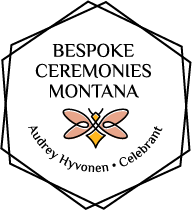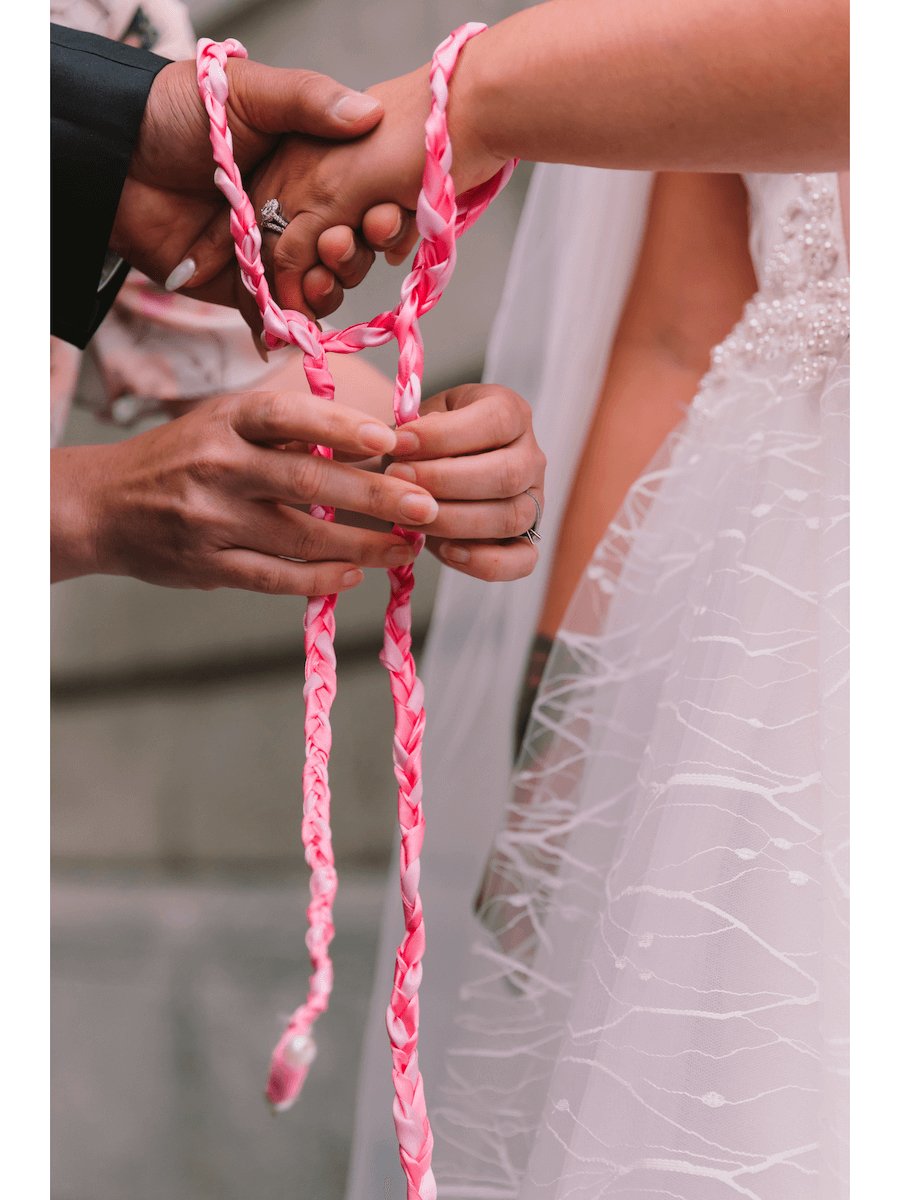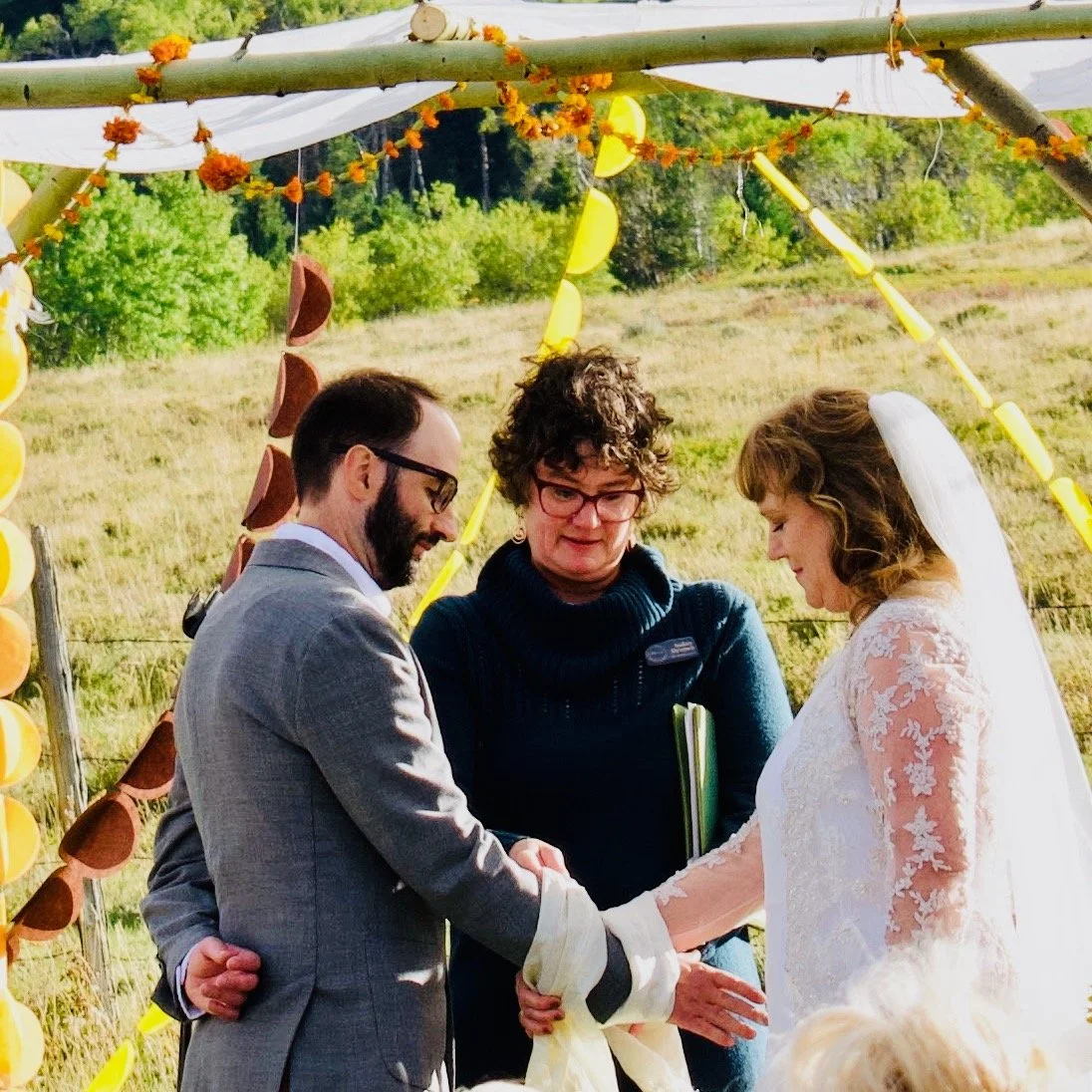Anchor with Ritual: Hand fasting
A Hand fasting ceremony ritual
Photos: Mountain View Photo
Where do the traditions of hand fasting originate?
According to Kent wedding celebrant Nikki Wood and her mentor, Glenda Procter, the tradition of hand fasting has its roots in Celtic history preceding Christianity. In those days there were strict rules and few officiants so local dignitaries would do a hand fasting ceremony for a couple to give temporary recognition of their union for “a year and a day” until an officiant arrived to the town to legalize the marriage. The word comes from the Old Norse word pronounced “hand~festa” meaning “to strike a bargain by joining hands”. Glenda also shares that a full Handfasting ceremony has four components and that the hand tying component, which is often referred to solely as hand fasting, has only one component. The other components include vows, the cake and ale ceremony and the jumping of the besom broom.
Photo: Albina Kosenko
Three reasons why couples would choose to include a handfasting
In modern times there are many reasons a couple might choose hand fasting (or rather, for the sake of clarity in this article: hand tying).
Here are three:
It is a fun and creative way to personalize a ritual through the use of meaningful ropes, cords or ribbons (I.e. a trapeze/trick rope artist and her sailor/rock climbing partner might choose retired ropes that are still sturdy and strong for the symbolism they hold- and yes- this is a personal reference!)
It is visual, tangible and grand- a great focal point during a wedding ceremony that can sometimes feel wordy or theoretical.
It’s a great way to involve family and friends- especially ones who may be uncomfortable with a speaking part but would be best included.
Lakeside love
Click here to read about James and Jessalyn’s intimate lakeside ceremony with a hand tying ritual in yellow:
What are the traditional symbolic meanings of colors in traditional handfasting and in general?
Photo: Clark42
In our western culture, red traditionally represents love, or passion, or at the end of the spectrum: fury. White denotes purity, or devotion, or taken to an extreme, submission or surrender. From a rope selling company in the USA I found a list of color meanings for ropes they sell giving a list of 8 different symbolic meanings to each of 14 colors. The lists were different on each subsequent query of various hand fasting resource sites so it’s hard to successfully capture a “traditional symbolic meaning” with any clout. The summary of my findings is- you can assign a meaning to any color as you like and use it in your hand tying ritual to add a memorable and inclusive element to your personalized wedding ceremony. Ideas of themes that can be marked with colored ribbons- the journey of past/present/future, the couples’ personalities, loving relatives that can’t be present at the ceremony, pets we have loved...The options are endless. And luckily the source of such cords is wide open too- from vines to lace- it’s all good!
How could you get the friends and family involved in the hand fasting?
This is a perfect ritual to involve friends and family. In a small to moderate ceremony, guests can be invited to place/drape the actual ribbons and cords on the couple’s hands. With a larger crowd, select invited guests would be targeted. It also holds the space for friends and/or family to say blessings with each cord, share the chosen meaning behind the colors of each cord and for family members not able to join in person- they might be invited to contribute cords ahead of time to add to the bundle.
Micah and his mom
Read more about Micah and Kailin’s hand fasting and how they involved their family in their small and intimate ceremony right next to Glacier National Park.
Click here:
Are you considering adding a handtying ritual to your celebration? I’d love to support that and the rest of your custom celebration. Book a call so we can get started!













